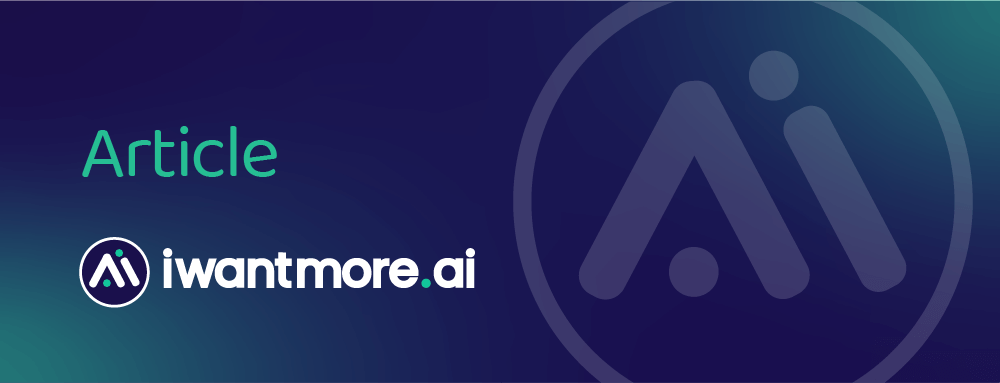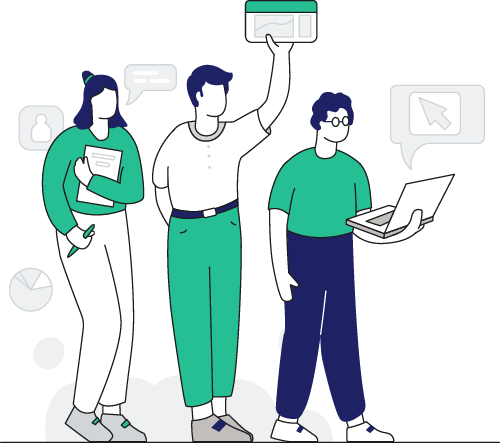
Are you ready for the AI agent boss?
AI agents are the fancy buzzword of the day. Loads of hype, but also loads of potential. Despite the hype, over promise and noise, we are still witnessing the birth of a new business model: human-agent teams. Human employees that are building, managing and working alongside AI agents.
Meet the AI agent boss.
Intelligence on tap
According to Microsoft’s 2025 Work Trend Index, 82% of leaders expect to use digital labour to expand their workforce over the next 12–18 months.
This addresses a growing capacity gap. 80% of employees report that they lack the time or energy to meet current demands, while 53% of leaders say productivity must increase. AI offers these employers an abundant, cost-effective resource to bridge this gap. It allows them to scale their workforce capabilities without proportionately increasing headcount.
A CFO’s dream.
Human-agent teams
The traditional org chart is giving way to what Microsoft now calls the ‘work chart’. Can’t say we love the name, but this is a flexible, goal-oriented structure built around tasks rather than people, teams or departments. In this new model, AI agents join human teams as digital colleagues, taking on specific tasks and workflows under human supervision.
This change is unfolding in three phases:
- Human with assistant: AI handles repetitive tasks to improve individual productivity.
- Human-agent teams: Agents actively collaborate on complex tasks, directed by humans.
- Human-led, agent-operated: Humans set strategic direction; agents execute processes end-to-end.
This isn’t a far-off fantasy land. Already, according to the Work Trend Index, 46% of global leaders report using AI agents to fully automate workflows for teams or entire functions.
Becoming an agent boss
As agents become integrated into our daily work, a new role has emerged: the agent boss. No longer confined just to managing people, employees must now learn to build, delegate to and manage teams of AI agents.
- 41% of leaders expect managing AI agents to become part of their teams’ responsibilities within five years.
- 32% of organisations plan to hire AI agent specialists to design and optimise multi-agent systems.
- 47% of leaders are prioritising upskilling employees in AI capabilities over the next 12–18 months.
This is going to require a mindset shift. Employees must treat AI not as a mere tool but as a genuine partner, much like they would with a human team member.
The data shows that this change is happening faster than many expect
The most effective incentives connect AI use to outcomes, not just activity. The goal is to recognise contribution, not just participation.
- 71% of employees at Frontier Firms (firms structured around on-demand intelligence and powered by hybrid teams of humans and agents) report their companies are thriving, compared to 37% globally.
- 55% of Frontier Firm workers say they are able to take on more work, with 90% stating they have more opportunities for meaningful work.
- LinkedIn reports a 20.6% year-on-year headcount growth in AI-focused startups, double that of traditional Big Tech firms.
- By 2030, 70% of the skills used in today’s jobs are expected to change, according to LinkedIn’s future workforce analysis.
What lies ahead
AI literacy is now the most critical skill for many employees. Those who learn to build and lead human-agent teams will be at a distinct advantage. Companies that invest in AI training and agent management capabilities will be better positioned to scale and innovate.
In the not-so-distant future, managing a team of agents could be as common as managing a team of people today. As organisations transition to this new model, many employees will become, in effect, an agent boss..
We are iwantmore.ai – an AI consulting firm. We work with organisations to harness the power of AI across their whole business. If you want to explore how your business can use AI and automation contact us.
Interested in more content like this? Sign up to our Newsletter here.
Other AI articles you may be interested in:

Governments across the world are racing to develop and deploy AI, but their approaches couldn’t be more different. The United States, China and the United Kingdom have all released formal action plans in 2025 that give us a clear sense of their priorities, politics and philosophies on AI. Here’s what they’re doing and what it tells us.

Governments across the world are racing to develop and deploy AI, but their approaches couldn’t be more different. The United States, China and the United Kingdom have all released formal action plans in 2025 that give us a clear sense of their priorities, politics and philosophies on AI. Here’s what they’re doing and what it tells us.

We say it to every business we meet. Regardless of the project, you can have the coolest, sexiest, best bit of tech out there, but without the people being on board it is a complete waste of time and money. Rolling out AI is no different. It’s about people. What’s the best way of bringing people along on any tech journey? Other people.

Artificial intelligence is hungry for energy. Behind every chatbot, Copilot, or agent are servers burning a lot of power. As more UK companies adopt AI tools, it's worth paying attention to how much energy those tools use and what that means for your sustainability targets and reporting requirements.

AI is no longer a future trend — it’s a present-day advantage. While some businesses are building AI agents and transforming operations, others risk falling behind. This article looks at what’s driving the AI divide, why foundational knowledge matters, and how even small steps can unlock real competitive value. If you’re standing still, you’re already losing ground.

It was only a year or two ago that the role of prompt engineer was being touted as the next great career path. Thousands of job ads appeared. People the world over updated their LinkedIn profiles to highlight their prompt engineering skills. Fast forward a couple of years and the role is already on its way out.
iwantmore.ai – The AI consulting firm that helps you build a smarter business
Wherever you are with your AI implementation initiatives, we have a range of stand-alone AI quick start services to help you fast track the transformative benefits of AI across your business.



